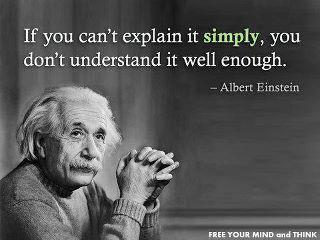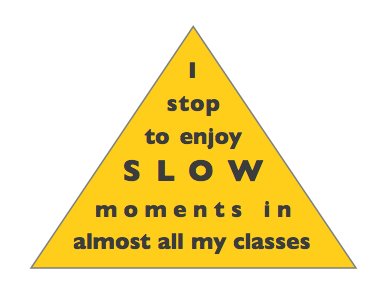The iTDi Principles
At iTDi, we share a dream of providing quality professional development for all teachers that is meaningful, accessible and affordable. We also share a vision of a vibrant global community of teachers, helping one another to become better teachers. Each of us brings different skills and talents to help make this dream and vision a reality in the International Teacher Development Institute (iTDi).
From our beginning two years ago, two principles have defined our vision:
Anything I can do, we can do better.
Whatever the problem, community is the answer.
Community has certainly been our answer. As we’ve worked to make iTDi a reality, our community has grown and helped us gain a better understanding of what these two principles mean in practice. As we open our doors to the world, it seems appropriate to share with you what we have come to believe about education and professional development and we now call the iTDi Principles.
1. Every teacher matters
The iTDi community is full of teachers studying side by side from all around the world. They come from every conceivable teaching context, with a full range of resources, support, and compensation. We’re all on a similar journey of development and we all have something of value to share with others. All teachers deserve equal respect.
2. We can always become better teachers
It doesn’t matter what your first language is or what qualifications you currently have. In other words, it doesn’t matter where you come from; it matters where you want to go. There is always something new that we can learn.
3. We learn better together
Teachers are perfectly capable of directing their own professional development. We have also learned, though, that there is real power in learning together. It can be more effective, it provides just the right amount of pressure to get more things done, and it can be entirely more enjoyable than working alone. When we succeed at learning together, we become even better with our successes.
4. Every teacher deserves access to professional development
Teachers who want to become better teachers should have the opportunity to do so. Teachers can’t always afford the time or money to travel to conferences or to enroll in degree or certificate courses. Professional development must be of the highest quality, accessible from remote locations, and affordable to all.
5. We are all learners
Although members of the iTDi faculty have years of experience in various areas of expertise, we are also ongoing learners. We expect to learn from the teachers who join our courses. You have unique insights and experiences to share, and your contribution to our community is invaluable. Every voice matters. We are all on the same journey as teachers and learners.
6. We can all be leaders
We fully believe all teachers have the potential to become leaders for other teachers in their communities. We’ve seen this happen again and again, as teachers become not only leaders within their own local communities, but within the international education community as well. Leadership is possible for anyone willing to make the effort.
7. Community works
Being a member of a safe, caring community helps us grow as teachers and as people. The relationships we foster within our community provide us with powerful growth opportunities as we mentor and nurture each other.
8. Education leads to change
As we grow both professionally and personally within our community, and as we become better teachers, we change. We change not only ourselves and the way we teach but we can also have a positive impact on those around us: our students, our colleagues, our schools, and our local communities.
9. Education matters
The best way to change the world for the better is to provide quality education for all learners. The best way to do this is to give all teachers the opportunity to become the best teachers they can be. If we do this, we really can change the world.
10. Together, we can change the future
We strengthen our teaching profession by making sure that all teachers have the opportunity to participate in professional development. At iTDi, we believe that the best way to do this is to work together in a community built on an atmosphere of mutual respect, caring, and trust; to take responsibility for our own professional development and to make this community the first step in making positive change for learners everywhere.
All of us share this vision and affirm these principles. It is no longer just a dream. It is iTDi. We invite you to join us, work side by side with us, and help us continue to shape iTDi into all that it can be. We truly are better when we work together.
If you would like to work with us, click here to sign up as a new member of the iTDi Community. As a member, you can connect with other teachers, post in community forums, and try a couple of free lessons. When you are ready to go further by investing in a lesson from our Teacher Development or English For Teachers courses, we’ll be there to work with you and show you how we put these principles into practice.
For teachers by teachers, iTDi
Scott, Chuck, Barb and Steven
|
|
|
|
|
|
PS: “Don’t be fooled by my name on the post. In this case, it simply means I uploaded it. It was a real pleasure working with Scott, Chuck, and Barb on this post. Chuck sent around the original draft of these principles, and we finally found the right words for this set of shared principles which we all deeply believe. Working in this collaborative manner is one of the things I love about iTDi.” – Steven













